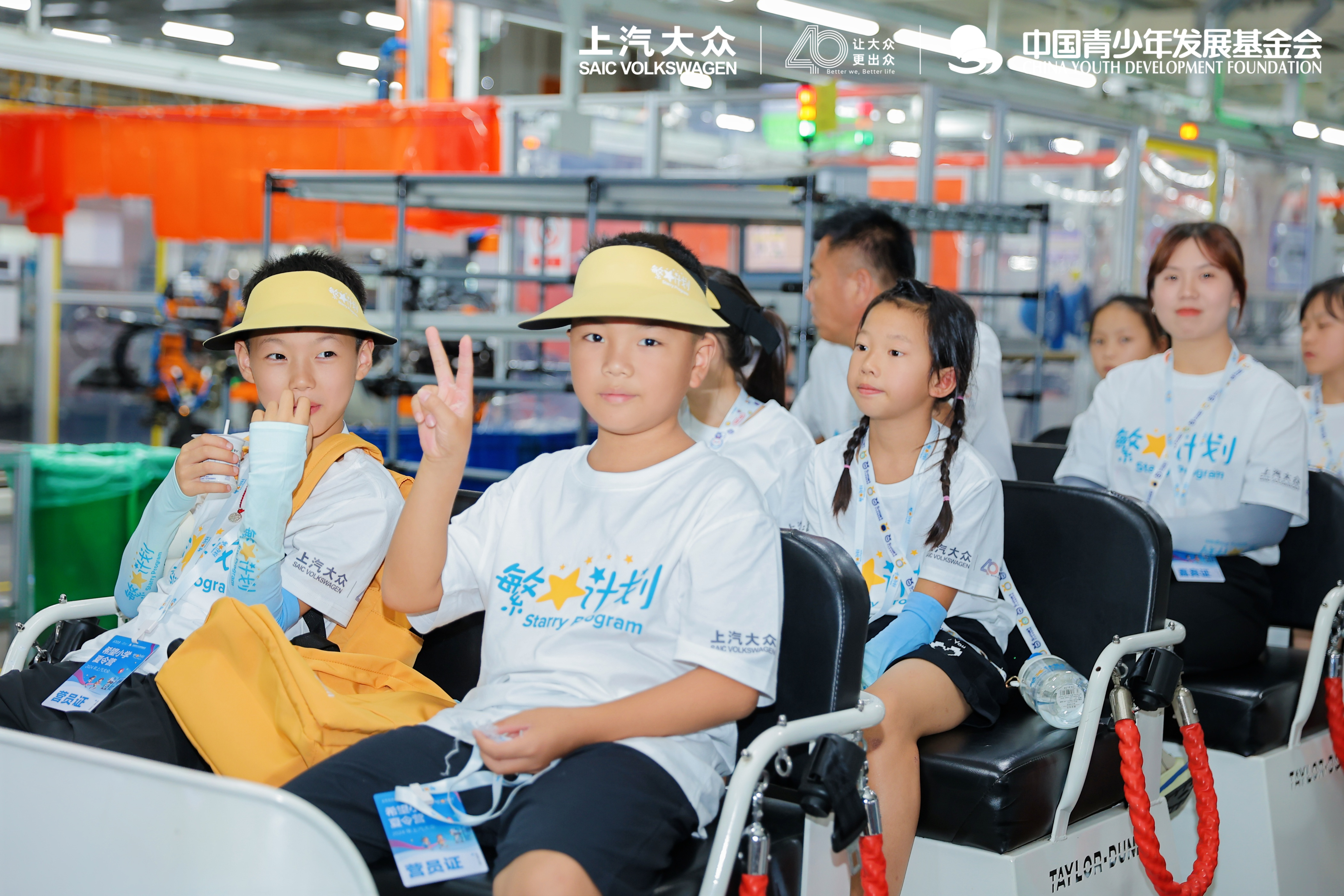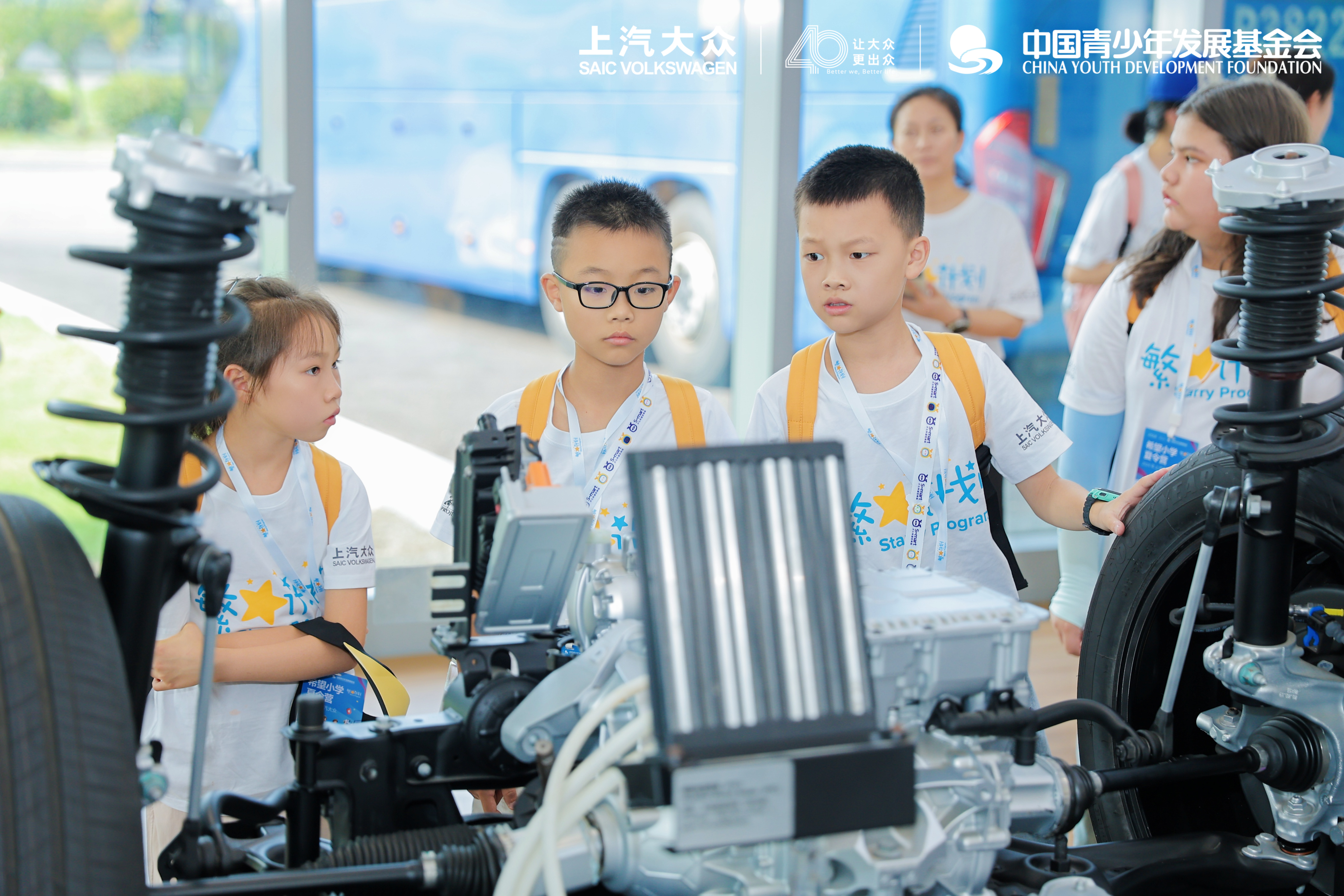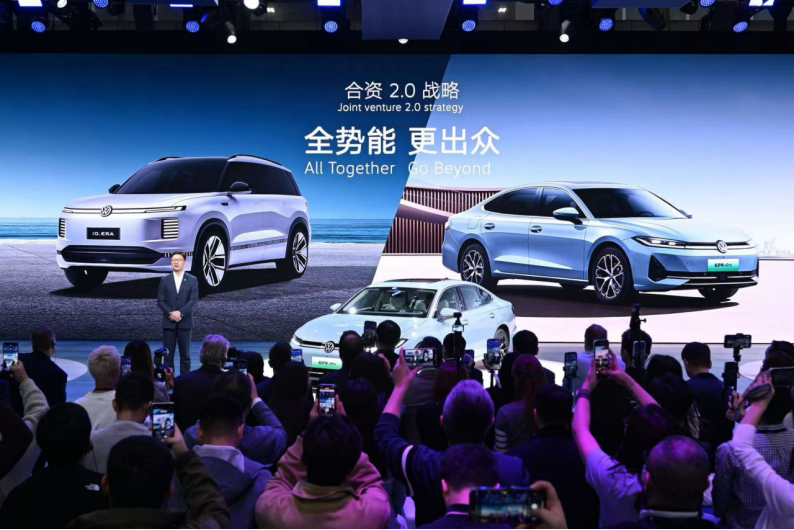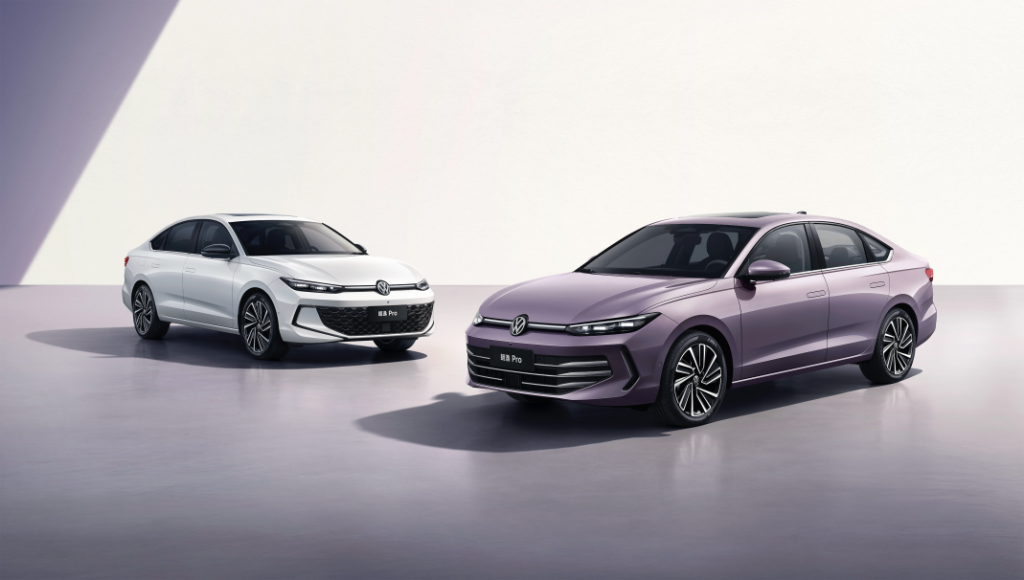
On August 13, in Jiading, Shanghai, SAIC Volkswagen officially launched its summer camp named the "Star Project."
This marks a day trip for children from the hope primary schools that SAIC Volkswagen has long supported.
After the opening ceremony in the morning, the children first visited the Shanghai Auto Museum to explore fascinating stories related to automobiles, followed by a tour of the MEB factory in Anting, where they observed the modern automobile production process and learned about SAIC Volkswagen's 40-year development journey.

Ending their one-day automotive adventure, 40 teachers and students from eight SAIC Volkswagen hope primary schools across six provinces including Hunan, Yunnan, Henan, Guangxi, and Shaanxi will spend the following week visiting the Shanghai Planetarium, Shanghai Zoo, Shanghai Natural History Museum, and Ocean Park to experience the mysteries of the scientific world and the wonders of nature.
SAIC Volkswagen has consistently participated in public welfare initiatives across various fields including education, safety, environmental protection, community, and culture. Among these, the "Star Project" stands out as a signature initiative. Since 2015, SAIC Volkswagen has continued to carry out activities under the "Star Project," which started in Shanghai and has expanded to Hunan, Guangxi, Shaanxi, and Yunnan, supporting the development of rural education.
“Every child is like a star in the sky, shining with their unique brilliance.” This vision encapsulates the essence of SAIC Volkswagen's "Star Project" initiative in the hope primary schools, reflecting their unwavering commitment to ensuring educational equity for every student. SAIC Volkswagen believes that each day of the summer camp represents a new starting point for children to explore science, discover themselves, and realize their dreams.

SAIC Volkswagen has always focused on the educational development of Chinese youth. Initially, the "Star Project" aimed to improve the hardware facilities of rural primary schools. In 2023, the "Star Project" underwent a significant upgrade to version 2.0. SAIC Volkswagen teamed up with the China Youth Development Foundation to collaboratively design STEM courses tailored for different grade levels.
The courses are designed with the characteristics of rural education in mind, starting from familiar elements in children's surroundings and covering various topics. It's noteworthy that SAIC Volkswagen engineers are also involved in the curriculum development process, integrating engineering knowledge related to automobiles—like lighting design and transport energy signals—into the courses in an approachable manner.
This time, the children had the opportunity to experience the same curriculum as the Skoda Hope Primary School in Words Town, Huayuan County, Xiangxi Autonomous Prefecture, Hunan, where they made solar-powered vehicles. This school is a pilot site for the development of SAIC Volkswagen's STEM curriculum, meaning the children there get to be among the first to experience the allure of scientific education.
Creating solar-powered vehicles is typically a project for younger students since it's quick to learn and easy to use. Teacher volunteers start by introducing what science is, encouraging children to actively explore the connections between everyday scenarios and scientific principles, while experiencing relationships between scientific concepts and engineering technology.
A thoughtful detail in this process is how to decide group assignments. Teacher volunteers allow each student to randomly draw a puzzle piece, and those who can successfully assemble it into a car automatically become a group. This approach not only prevents any child from being left out but also enables children of varying abilities to form a team, leveraging the power of collaboration to complete tasks.
Currently, SAIC Volkswagen, in collaboration with teacher volunteers, has designed 12 STEM-themed courses which have been rolled out across the hope schools built by the company, with plans to gradually extend these to more non-supported schools in the future.
Back in 1995, SAIC Volkswagen recognized the importance of youth education in underdeveloped regions and began building hope primary schools in the western areas. Since 2012, SAIC Volkswagen has donated educational funds to these areas continually for five years, equipping local schools with computer labs, art rooms, and sports equipment.
As of now, the "Star Project" has donated over 16 million yuan, establishing 11 hope schools in regions such as Hunan, Henan, Guangxi, Hubei, Guizhou, Shaanxi, and Yunnan. Each year, more than a thousand youths benefit from this program, with a total beneficiary count exceeding 21,000. The school facilities include sports areas, libraries, language classrooms, and computer rooms, providing students with more effective learning tools and enriched educational resources.
SAIC Volkswagen is also committed to fulfilling its responsibilities as a sustainable citizen in areas across the country where it has manufacturing bases. In the future, the company will continue to uphold its corporate social responsibility, integrating sustainable development concepts with its growth strategy, ensuring that the spirit of public welfare is embedded in every key action of the organization, making Volkswagen stand out even more.


